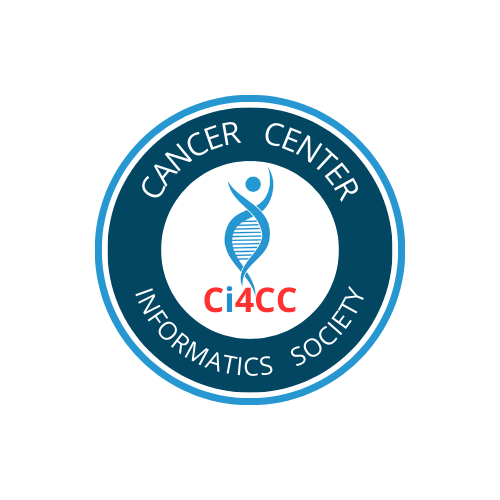CAMBRIDGE, Mass.--(BUSINESS WIRE)-- Foundation Medicine, Inc. (NASDAQ:FMI) today announced the launch of its precision medicine partner program, Precision Medicine Exchange Consortium™ (PMEC), to facilitate data exchange, advance research, and support education and applications of precision medicine in oncology and molecular pathology. PMEC brings together oncology thought leaders from academic medical centers, regional hospital systems, and community oncology networks, initially located in the U.S. and to be expanded internationally, who share a vision for utilizing precision medicine as a means for improving clinical outcomes in oncology treatment. The consortium intends to realize this vision through a collaborative exchange of molecular information and clinical outcomes data, and through a broader integration of comprehensive genomic profiling in cancer treatment.
Founding members of PMEC include The Cleveland Clinic's Taussig Cancer Institute, Hackensack University Medical Center, The Robert H. Lurie Comprehensive Cancer Center of Northwestern University, Sidney Kimmel Cancer Center at Thomas Jefferson University, UC Davis Health Comprehensive Cancer Center, the University of North Carolina Lineberger Comprehensive Cancer Center, and Vanderbilt-Ingram Cancer Center and The Wake Forest Baptist Comprehensive Cancer Center.
"Progress in cancer care will be achieved by breaking down the information silos that exist in healthcare and collaborating towards clinically robust and relevant data exchange," said Brian Bolwell, MD, chairman of the Cleveland Clinic Cancer Institute and founding member of PMEC. "We applaud Foundation Medicine and our partner institutions in PMEC for their innovative thinking, for valuing the exchange of information, and for taking a leadership role to effect a positive change for our patients with cancer."
PMEC is being established on the guiding principles of innovation, education and the exchange of highly validated molecular information and outcomes data to improve cancer care. PMEC members will have access to a suite of innovative information tools and programs tailored to fit the needs of the individual cancer centers who are members of PMEC.
A selection of these planned offerings include:
- access to a shared data exchange platform of de-identified, matched clinical outcomes and genomic data contributed by Foundation Medicine and PMEC members to support research and clinical innovation;
- access to clinical research programs that integrate comprehensive genomic profiling to improve cancer care; and
- programs to support the advancement of precision medicine and molecular oncology through training, education and streamlined member services.
Additionally, PMEC members can elect to participate in best practices exchanges, where members will have the opportunity to share ideas advancing precision medicine.
"The promise of precision medicine rests on these national and international initiatives, including PMEC, which enable investigators to share crucial data. Only through that data sharing can we understand the implications of genomics for patient care," said Mary Zutter, M.D., assistant vice chancellor for Integrative Diagnostics at Vanderbilt University Medical Center.
"The Precision Medicine Exchange Consortium is being developed as the most comprehensive program of its kind and will align innovators in cancer care around molecular information and clinical data curation and exchange," said Vincent A. Miller, M.D., chief medical officer at Foundation Medicine. "Collectively, PMEC is poised to fuel innovation, support cancer research and extend valuable information and education in a way that heretofore has not happened within the cancer community. We're proud to be launching this initiative with so many thought leaders across a broad spectrum of cancer institutions and practices. We're actively seeking new members who share PMEC's vision, and we welcome conversations with additional cancer centers, data and informatics organizations and payers who embrace the opportunity to collaborate for the betterment of cancer care."
About Foundation Medicine
Foundation Medicine (NASDAQ:FMI) is a molecular information company dedicated to a transformation in cancer care in which treatment is informed by a deep understanding of the genomic changes that contribute to each patient's unique cancer. The company's clinical assays, FoundationOne® for solid tumors and FoundationOne® Heme for hematologic malignancies and sarcomas, provide a comprehensive genomic profile to identify the molecular alterations in a patient's cancer and match them with relevant targeted therapies and clinical trials. Foundation Medicine's molecular information platform aims to improve day-to-day care for patients by serving the needs of clinicians, academic researchers and drug developers to help advance the science of molecular medicine in cancer. For more information, please visit http://www.FoundationMedicine.com or follow Foundation Medicine on Twitter (@FoundationATCG).
Foundation Medicine® is a registered trademark, and Precision Medicine Exchange Consortium™, PMEC CORE™, PMEC Research™, and PMEC Education™ are trademarks, of Foundation Medicine, Inc.
Cautionary Note Regarding Forward-Looking Statements
This press release contains "forward-looking statements" within the meaning of the Private Securities Litigation Reform Act of 1995, including, but not limited to, statements regarding the vision, objectives, members and offerings of Precision Medicine Exchange Consortium, the initiation of PMEC programs, and the ability of PMEC to affect cancer research and cancer care. All such forward-looking statements are based on management's current expectations of future events and are subject to a number of risks and uncertainties that could cause actual results to differ materially and adversely from those set forth in or implied by such forward-looking statements. These risks and uncertainties include the risks that PMEC is unable to successfully combine and share de-identified clinical outcomes and genomic information, to provide patients of PMEC members with access to clinical trials; and the risks described under the caption "Risk Factors" in Foundation Medicine's Quarterly Report on Form 10-Q for the three months ended March 31, 2015, which is on file with the Securities and Exchange Commission, as well as other risks detailed in subsequent filings with the Securities and Exchange Commission, may be realized. All information in this press release is as of the date of the release, and Foundation Medicine undertakes no duty to update this information unless required by law.





